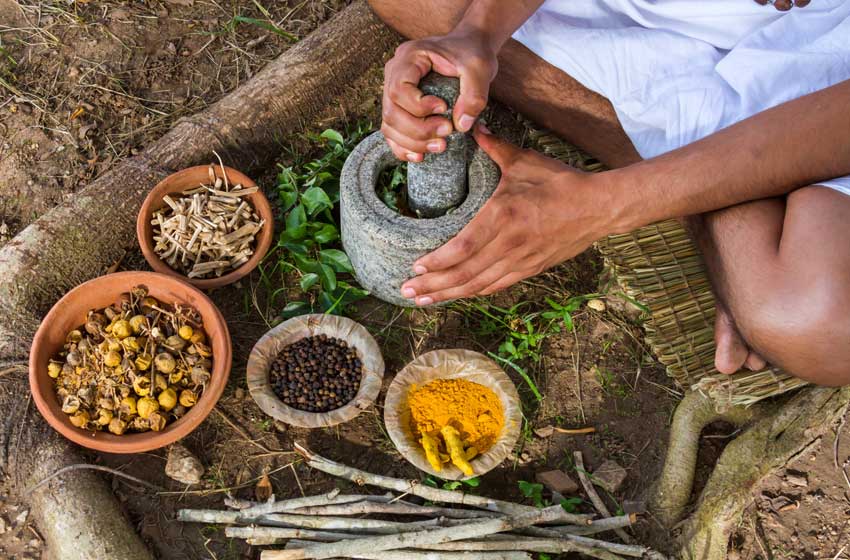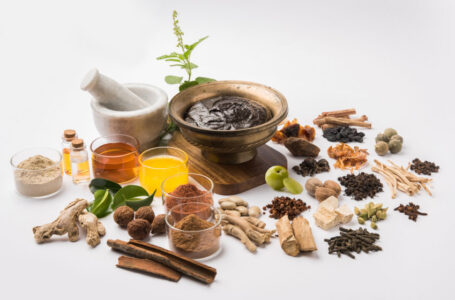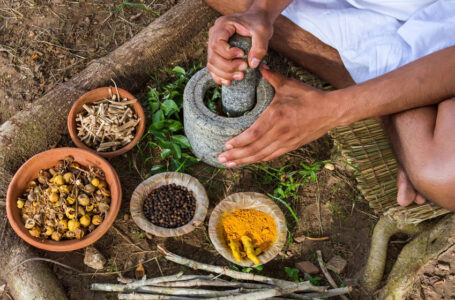Effective Ayurvedic Remedies for dealing with Health Concerns
- Health & Fitness Life & Style
Priyam Chatterjee
- 3 September 2021
- 0
- 556

Ayurvedic practices are considered one of the oldest health remedies known to man dating back to 5000 years. With the aid of natural roots and herbs, Ayurveda has cured diverse ailments. In this article, we review some ayurvedic remedies for treating certain health conditions.
Ayurvedic Remedies
The growing popularity of Ayurveda has sprung more remedies that many are beginning to take more seriously. Ayurvedic treatments come in different forms, but homemade recipes prepared to treat common diseases are the most widely used remedies. For example, Ginger tea is a very effective ingredient used for treating fever, cold, cough and weak digestion. Here are some of the ways Ayurvedic remedies may work for you.
Minor health concerns like small wounds, joint pain and the common cold-
Remedies: A Neem paste applied on the surface of a wound can heal the wound quickly. Triphala powder sprinkled over an abscess will cause it to dry up. This powder is a recipe prepared with three fruits, namely-
- Amla (Emblica Officinalis)
- Haritaki (Terminalia chebula) and
- Vibhitaki (Terminalia bellirica)
Improving skin health and enhancing beauty-
Aloe vera, heated slightly and turned into a paste, can be applied all over your face to improve the quality of your skin. Or you can wash Ghee in water several times and apply it all over your face to serve as sunscreen. This remedy is called Shata Dhauta Ghrita or Ghee wash.
How to prepare Ghee Wash?
To prepare Ghee wash, about 500ml of iced Ghee is dropped into a vessel, and an equal quantity of water is added to it and whipped as much as five times. Then the water is drained, and the process is repeated all over again with water added and drained about 100 times. Finally, the Ghee will become very soft and cool. If rubbed on the face, it relieves burning sensations and protects the skin from the harsh sun.
Improving the quality of life

Amla rejuvenates and detoxifies the body. Amla fruit has excellent therapeutic effects and can be consumed in different forms like juice, raw fruit, or pickles. If fresh fruit is not available, you can opt for the dry powder by taking a dose of ½ or one teaspoon of Amla powder once or twice daily along with water and honey.
Boosting immunity
Kashaya is a herbal tea that you can use to boost your immunity. This tea is a combination of ginger, Gilroy and Ashwagandha. You add Kashaya powder to 2 cups of water, then boil in low heat until it is reduced to half a cup. Then you filter it. Kashaya can be drunk once or twice daily before food.
Dealing with chronic illness by speeding up the healing process
If you suffer from symptoms of irritable bowel syndrome, you can deal with the problem by taking pomegranate juice every day. To make this juice:
- Squeeze pomegranate seeds into two cups, then filter them.
- Add two cardamom, one teaspoon of unrefined sugar and a slight pinch of salt.
- Mix everything and drink twice daily before food.
Types of traditional Ayurvedic remedies
The interesting thing about traditional ayurvedic remedies is that they come in different forms, so you are spoilt for choice when deciding on which one to use. There are many herbs listed in legendary ayurvedic textbooks like Sushruta Samhita, Ashtanga Hrudayam and Charaka Samhita.

For instance, in the Ashtanga Hrudayam and Charaka Samhita, Triphala is mentioned as a therapy for healing eye disorders and obesity. Likewise, Neem paste is recorded in Sharangdhar Samhita as a model for healing wounds. Ancient practitioners have documented these recipes throughout the ages through rigorous testing, and they are very efficacious. Due to thousands of years of history, many people trust them to be safe and effective. Furthermore, the textbooks that record them are regarded as very credible.
Classification of Remedies
Ayurveda remedies are classified into two groups. They are-
Folklore remedies: Folklore remedies are the types of remedies practised by healers in rural areas. These healers pass their knowledge from one generation to the next. Unfortunately, most of them are not documented because they are passed through word of mouth.

Modern remedies: On the other hand, modern remedies are the combination of herbs registered and practised by current Ayurvedic practitioners. The downside with modern remedies is that they have not stood the test of time, so, therefore, their efficacy and safety is not as established as folklore remedies. However, their advantage over folklore remedies is that their effects, preparations, and dosage are well documented.
Precautions to take when using ayurvedic remedies
Before you commence the use of ayurvedic remedies, there are certain precautions you must take-
Consult a medical practitioner
It is always wise to consult a medical practitioner regarding the herbs you wish to take. Practitioners are in the best position to advise you on the right set of herbs and the recommended dosage. Although homemade recipes are ubiquitous, combining them with modern medicine may make them more effective.
Follow instructions
Adhere strictly to the instructions in regards to the preparation of the remedies. Ingredient proportions and mixing methods must be followed exactly. This prevents overdose or underdose.
Do not rely on remedies only
Remedies are healthy, and they do work for minor symptoms as they play supportive roles. However, do not rely on them alone for curing diseases. This is why consulting your doctor is very important.
Conclusion
Ayurvedic home remedies are very effective for maintaining good, balanced health and lifestyle. However, make sure you follow dosage requirements and the preparation process as instructed. Furthermore, you need to consult your doctor before taking any home remedy to avoid using the wrong herbs.







